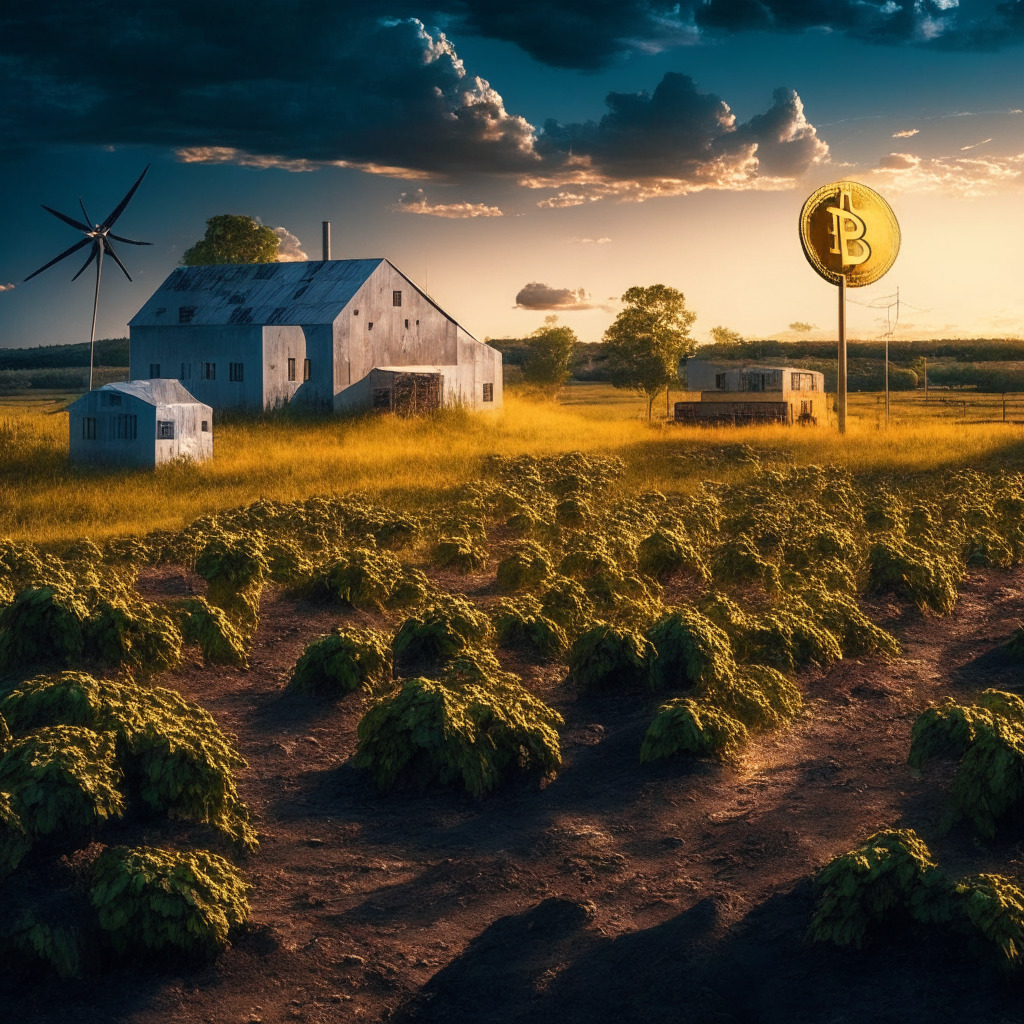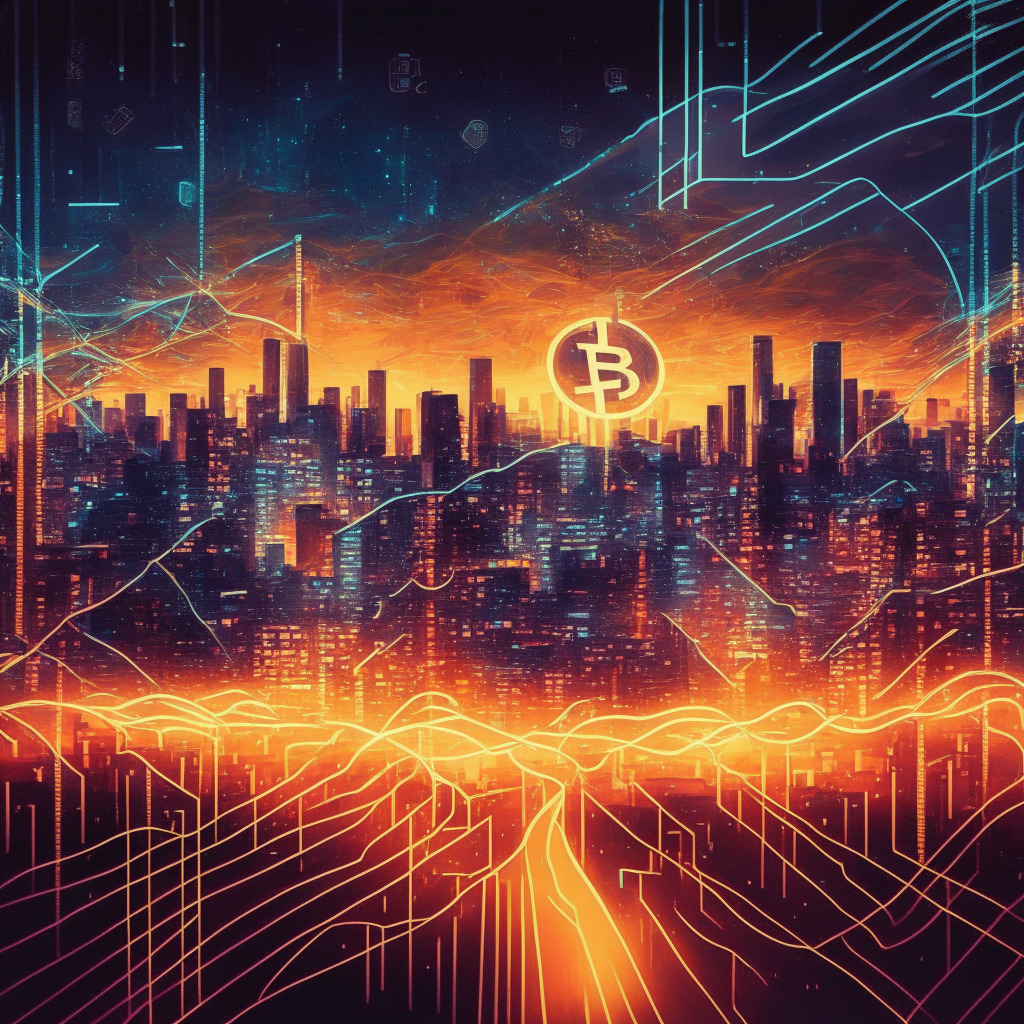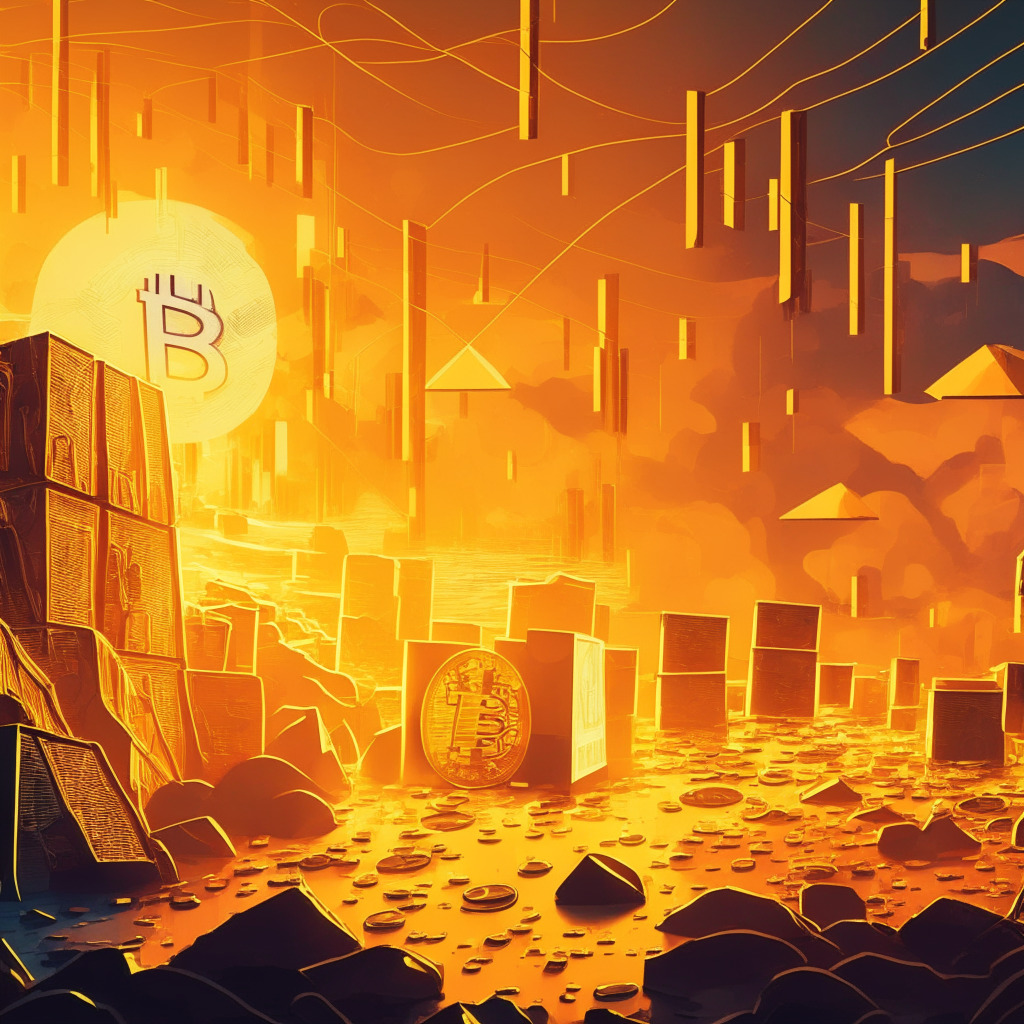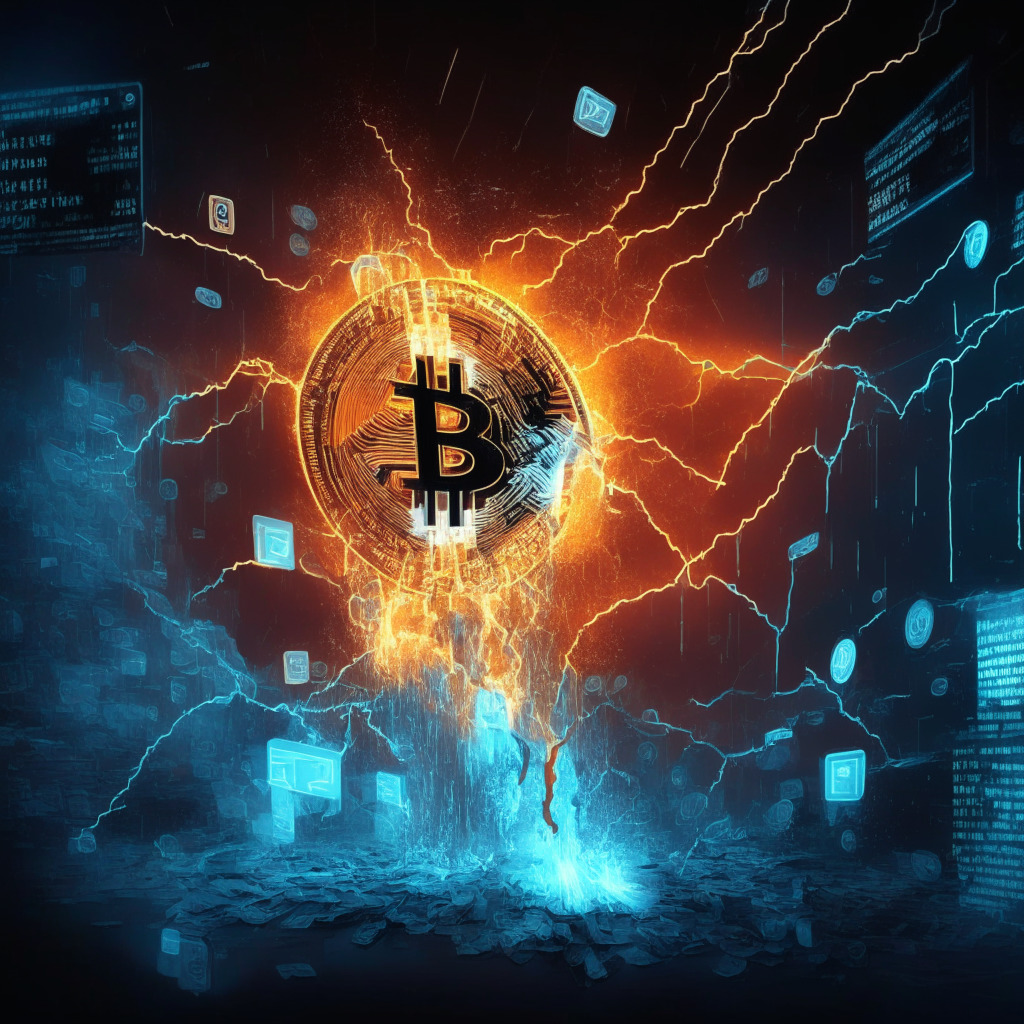Robinhood is reported to control a single Bitcoin wallet with over $3 billion, ranking third behind Binance and Bitfinex in terms of Bitcoin holdings. Despite this, Robinhood experienced an 18% slump in crypto trading volume in Q2, creating questions regarding the ownership and acquisition of such vast wealth amidst declining trading volumes.
Search Results for: BitInfoCharts
Mystery Surrounds Third-Largest Bitcoin Wallet with $3.1 Billion Haven: Prospects and Speculations
A new Bitcoin holder has recently emerged, owning around 118,300 Bitcoin worth about $3.1 billion. This unidentified wallet is now the third-largest Bitcoin holder. This activity began in March, with significant transactions primarily coming from Gemini, leading to speculation that the wallet may be a “hot wallet” used for major acquisitions, possibly linked to BlackRock’s recent filing for a Bitcoin ETF.
Mystery Bitcoin Wallet Grows Rapidly to Third Largest Overnight: BlackRock or an Exchange?
An unexpected Bitcoin wallet has quickly become the third largest BTC holder, amassing 118,000 BTC in just three months. This sudden accumulation has sparked speculations, including the possibility of investment management corporation BlackRock being the principal stakeholder of this wallet. Simultaneously, BlackRock’s application for a spot Bitcoin ETF product has excited crypto circles.
Bitcoin Cash Surges on EDX Listing: Can it Compete with Bitcoin in the Long Run?
Bitcoin Cash (BCH) surged to a one-year high, with a 100% rally in the past week, following its listing on institutional-backed crypto exchange EDX Markets. Renewed attention, trading volume, and social media interest have impacted the price, but its traction remains a fraction compared to Bitcoin.
CleanSpark’s $9.3M Expansion: Mining Efficiency vs Uncertain Profitability in Bitcoin Industry
Bitcoin mining firm CleanSpark acquires two mining sites in Georgia for $9.3 million, aiming to achieve a 16 exahash per second (EH/s) hash power target by 2023. The acquisition contributes to a 15% increase in computing power, positioning CleanSpark as an energy-efficient miner. However, long-term profitability amidst market challenges remains uncertain.
Elon Musk Accused of Market Manipulation: Analyzing Dogecoin Wallets Amid Lawsuit
Tesla CEO Elon Musk faces accusations of insider trading and market manipulation in a class action lawsuit regarding Dogecoin. Amid significant events related to Musk or Twitter, mysterious Robinhood wallets linked to him underwent massive Dogecoin asset reshuffling, raising concerns among on-chain analysts.
Ordinals Protocol Shifts to Litecoin & Dogecoin: Impact on Network Activity and Future Challenges
The Ordinals protocol, initially aimed for the Bitcoin network, has shifted to Litecoin and Dogecoin, resulting in a significant increase in transaction volume on both networks. The introduction of LRC-20 and DRC-20 token standards allowed users to create new memecoins, driving network activity. Balancing benefits and drawbacks is essential for understanding this technology’s impact on the blockchain ecosystem.
Surge in Litecoin’s Popularity: The Ordinals Boom and Its Challenges
The rising interest in Ordinals, similar to NFTs, has led to a surge in Litecoin’s blockchain activity and value. The introduction of Ordinals to Litecoin’s blockchain has garnered significant attention, with over 2.6 million Litecoin Ordinals inscribed. However, potential drawbacks like short-lived popularity and environmental impact warrant scrutiny.
Litecoin’s Surge: LTC-20 Token Standard, NFTs & Future Price Predictions Debated
Litecoin (LTC) experienced a significant price increase recently, with a 6.5% rally on May 15, outperforming Bitcoin and Ether. This boost has been partly attributed to the new LTC-20 token standard, enabling NFT minting on the Litecoin blockchain and increasing network activity.
1 Million Bitcoin Addresses Milestone: Decentralization vs Wealth Concentration Debate
The number of Bitcoin addresses holding more than 1 BTC has reached the one million milestone, despite its price drop from $69,000 to around $26,8000. This growth underlines Bitcoin’s increasing mainstream presence and could potentially lead to increased price stability and further growth in the digital asset ecosystem.
BRC-20 Tokens on Bitcoin Blockchain: Innovation vs Network Congestion and Surging Fees
The Bitcoin network struggles with record transactions and fees due to the introduction of BRC-20 memecoins, causing over 400,000 pending transactions. The situation raises questions about the future of these tokens, with miners enjoying increased profitability and core developers considering them as network spam. Balancing innovation and network integrity will be essential moving forward.
Litecoin’s Surge as Meme Coins and BRC-20 Tokens Clog Bitcoin Network: Swift Solutions or Security Trade-offs?
Recently, congestion on the Bitcoin network due to meme coins and BRC-20 tokens led to increased interest in viable alternatives like Litecoin. The number of daily Litecoin transactions soared to an all-time high, nearly matching Bitcoin’s transactions. Despite benefits in transaction speed and cost, Litecoin may have lower network security compared to Bitcoin.
Bitcoin Miners Earning More from Fees: A New Era or Temporary Shift?
For the first time since 2017, Bitcoin miners are earning more from processing transactions than from creating new BTC, due to increased transaction-processing profits and challenges in the industry. This shift is partly attributed to Ordinals, a project embedding NFTs onto Bitcoin’s blockchain, highlighting the growing importance of transaction-processing revenue for miners’ long-term sustainability as block rewards diminish.
Bitcoin Miners’ Income Surge: Analyzing Impact on Network Security and Future Sustainability
Bitcoin miners’ income recently experienced a significant boost with transaction fees exceeding block rewards for the first time since 2017. As demand for Bitcoin skyrockets, concerns arise over whether inconsistent transaction fees will provide a steady income for miners, ensuring network stability and security in the long run.
Binance Moves $4.4 Billion BTC: Analyzing Wallet Security and Network Congestion Challenges
Binance, the world’s largest cryptocurrency exchange, recently moved $4.4 billion worth of Bitcoin across its wallets, raising eyebrows in the crypto community. Meanwhile, the platform temporarily halted Bitcoin withdrawals twice, citing network congestion and a backlog of pending transactions due to low gas fees. The exchange is now working on enabling BTC Lightning Network withdrawals to prevent similar issues in the future.
Bitcoin Network Congestion: DoS Attack Fears Debunked by Increased Demand
Concerns about a potential denial of service (DoS) attack on the Bitcoin network emerged due to a sudden spike in transaction fees and unconfirmed transactions. However, analysts clarified that the congestion was caused by increased demand, not a premeditated attack.
Surge in Bitcoin Transaction Fees: Temporary Anomaly or Lasting Trend?
The Bitcoin network’s transaction activity surge, driven by Ethereum-style BRC-20 tokens and NFT-like “inscriptions,” has led to increased congestion and a spike in transaction fees, reaching $7.25 on Wednesday. While some experts anticipate temporary fee inflation, others expect a lasting trend due to NFTs’ growing popularity.
Exploring BRC20 Tokens: Boon or Bane for the Bitcoin Blockchain?
The new experimental token standard, BRC20, has generated substantial interest, with over 10,487 tokens built on Ordinals protocol and a market cap exceeding $95 million. The rise of BRC20 tokens and Ordinal inscriptions has sparked debates over high transaction fees, unconfirmed transaction backlogs, and their impact on practical usage and adoption of cryptocurrencies.

















